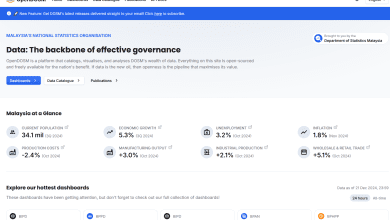AKPK Story 12 – The Legacy


This is the Final Part of the 12-part series on financial planning.
As Adam and Aida are now progressing to the next stage in their lives, their priority now is to live comfortably and to leave a legacy.
There’s a need for us to plan carefully should we intend to leave something behind for our next generation and this is where Estate Planning comes into effect.
Estate Planning is really the process of managing and administrating one’s assets through proper accumulation, conservation and distribution of his/her assets in the most effective and efficient manner. The whole purpose of estate planning is to ensure that when the time comes for a person to return to his Creator, his assets are sufficient to meet all his wishes and the beneficiaries will receive the assets in the proportion and manner desired. In addition, it aims to minimise assets depleting expenses like taxes and that the estate is sufficiently liquid to pay for all the costs of transfer like legal fees and stamp duties.
Adam is now thinking of how best to organise his estate to ensure that everything can proceed smoothly after his demise. He would like to leave the family home to Aida until such time when she departs, the home will be passed on to their children. He would also like to leave something behind for his grandchildren as some sort of legacy for them to remember their datuk. To achieve these objectives, there can be more than one way to realise them and we’d now look at some of the common estate planning instruments.
Basically, a Will is a written instrument by which an individual signifies his wishes as to the distribution of his estate after his demise. A Will, by its very nature, is revocable and can be modified at any time before the Will-maker dies. There are various ways in which you may get a Will written:
Engage a lawyer or professional Will-writer who is well versed with estate laws to write a Will (especially if you have loads of assets and dozens of family members!)
Engage Amanah Raya Berhad, a quasi-governmental body that specialises in estate administration, offering Will-writing services as well as estate administration and trust services.
Do-It-Yourself by searching for sample Wills in the internet or books, provided your Will is a straightforward one. Muslims are also able to write their Wills to cater to their needs who want to adhere to the syariah principles in estate administration.
Apart from the Will, there is another instrument which is a Trust. Essentially, a Trust is a legal arrangement or relationship whereby an individual transfers assets to a third party called a trustee (who may be an individual, a professional advisor or a corporation) who are bound to follow a set of directives, rules and regulations for the benefit of the beneficiaries. The trustee is duty bound to handle the trust property for the benefit of the beneficiaries. For example, Adam may decide to create a Trust whereby each of his grandchildren will receive RM100 a month until they reach 21 years old, upon which they stand to get a lump sum of RM10,000 each as a graduation gift. All these payments will be ongoing even when Adam is no longer around.
You may also create a Life Insurance Trust by purchasing an insurance policy on your own life and nominating your spouse, children or parents as your nominees. Upon your death, the sum assured plus whatever bonuses, if any, will be payable to your appointed nominees and they will be able to receive the money as beneficiaries without the need for probate and with less hassle. However, this is not applicable for Muslims as their appointed nominees will receive the money as trustees rather than beneficiaries and they should distribute it according to the faraid law of distribution.
You need not be a superstar or a world leader to be able to leave a legacy. And what better legacy to leave behind than the positive values that you sow within the hearts and minds of our children and our grandchildren. As the saying goes, “Give a man a fish and you feed him for a day. Teach a man to fish and you’d feed him for a lifetime!” This is similar to financial management and we should not just leave behind a large estate for our children without teaching them how to manage.


